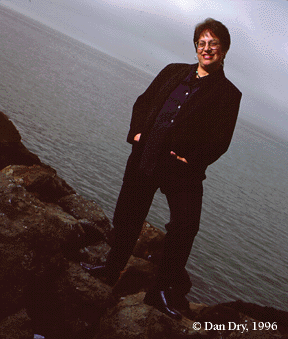

 The University of Chicago Magazine February 1996
The University of Chicago Magazine February 1996

 n meeting rooms all around the Washington Hilton, early-morning sessions of the annual American Anthropological Association convention are groggily assembling. Sparse gatherings of bleary-eyed scholars brace themselves with coffee while preparing to discuss the latest trends in such topics as "Ceramic Ecology" and "Cooking as a Marked Practice."
n meeting rooms all around the Washington Hilton, early-morning sessions of the annual American Anthropological Association convention are groggily assembling. Sparse gatherings of bleary-eyed scholars brace themselves with coffee while preparing to discuss the latest trends in such topics as "Ceramic Ecology" and "Cooking as a Marked Practice."
Further down the hall, where Sherry Ortner, AM'66, PhD'70, is addressing the Association for Feminist Anthropology, the room is packed. An audience of several hundred, mostly women, is sitting in chairs and on the floor, standing rows deep in the back, perching on table tops. Another 200 stand out in the hall, trying to listen through an open door.
At age 55, Ortner is regarded as one of feminist anthropology's founding mothers. Along with some of the other invited speakers--among them Louise Lamphere, who coedited Woman, Culture, and Society, an essay collection that helped launch the field, and Rayna Rapp, editor of the equally influential Towards an Anthropology of Women--Ortner is one of a handful of women who, 20 years ago, first turned the spotlight on gender's balance of power, both within the cultures they were studying and in anthropology itself.
CONTINUE READING "THE LONG WAY HOME"
Joe Levine, a New York City-based writer, is a contributing editor of this magazine.